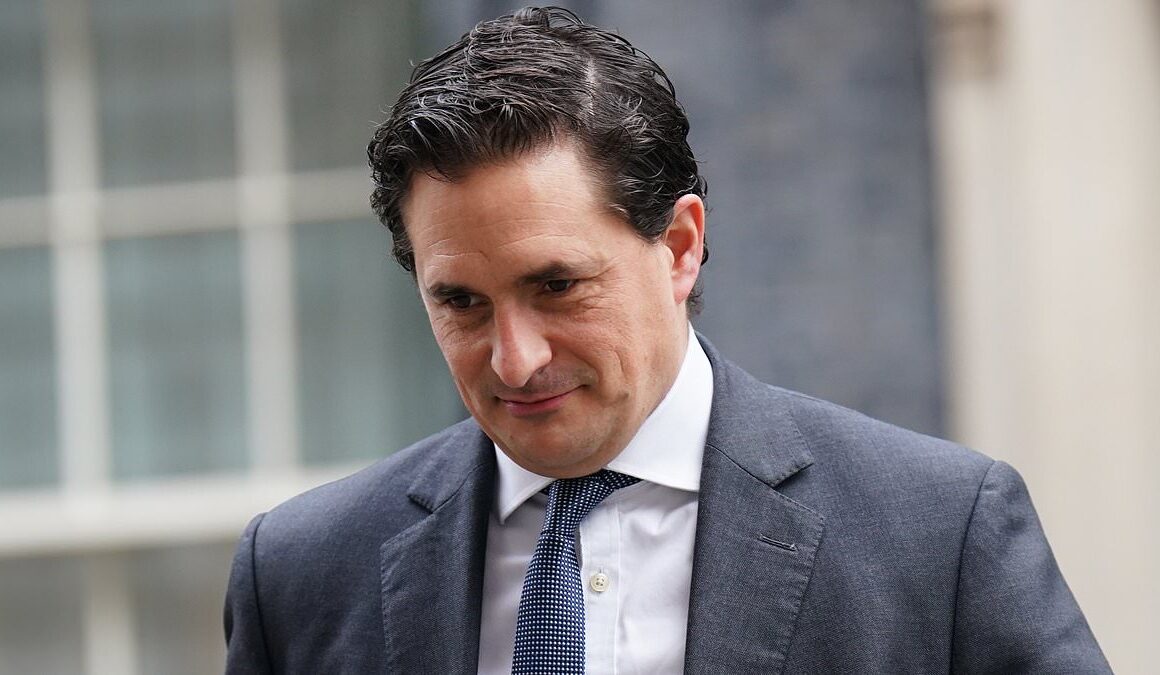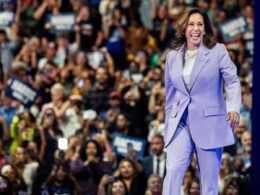Tory ex-minister Johnny Mercer has escaped immediate sanction after providing ‘further information’ to the chairman of the Afghanistan Inquiry.
The former MP had been ordered by a judge to name those who told him about alleged murders by British special forces by 4pm today.
Mr Mercer, who lost his Plymouth Moor View seat at the general election, had been facing a potential prison sentence if he failed to comply.
But, shortly after this afternoon’s deadline passed, it was revealed the former veterans’ minister had ‘agreed to assist the Inquiry further’.
A statement from the Inquiry read: ‘Mr Mercer has provided further information in response to the Section 21 Notice and agreed to assist the Inquiry further.
‘The Inquiry team will be taking this forward. For the time being, the Chair will not be taking further action in relation to the Section 21 Notice or making further comment.’
Yet, Mr Mercer later insisted he had not provided the names of whistleblowers to the Inquiry.
He posted on X: ‘I note the judge’s comments. My position remains unchanged from the beginning of the year. I will always do all I can to assist this important Inquiry.
‘I will not betray those I served with who have confided in me, whatever the cost.
‘As I have repeatedly stated, it remains entirely inappropriate to name those who confided in me without their consent.
‘For the avoidance of doubt: I have not and I will not. I will always assist the Inquiry (outside of those parameters).
‘This process has placed an unacceptable strain on me and my family. I am no longer a public figure; I will not be commenting further.’

Tory ex-minister Johnny Mercer has escaped immediate sanction after providing ‘further information’ to the chairman of the Afghanistan Inquiry

Sir Charles Haddon-Cave, the chairman of the Afghanistan Inquiry, had given Mr Mercer a deadline of today to disclose the names of ‘multiple officers’

In a post on X, formerly known as Twitter, Mr Mercer insisted he had not provided the names of whistleblowers to the Inquiry

The Inquiry is looking at issues arising from the deployment of British Special Forces to Afghanistan from mid-2010 to mid-2013 (stock photo)
Sir Charles Haddon-Cave, the Inquiry chairman, had given Mr Mercer the deadline of this afternoon to disclose the names of ‘multiple officers’.
Mr Mercer – who was veterans’ minister until the Tories‘ election loss – repeatedly refused to name those who told him, while he was a backbench MP, about claims of murder and a cover-up when he gave evidence to the Inquiry in February.
He has reiterated that he intends to ‘keep my word’ to those who confided in him and engaged in a legal row with Sir Charles in recent weeks.
The Inquiry is examining whether a special forces unit, known to the probe as UKSF1, had a policy of executing males of ‘fighting age’ who posed no threat in Afghanistan between 2010 and 2013.
Afghan families have accused UK special forces of conducting a ‘campaign of murder’ against civilians, while senior officers and personnel at the Ministry of Defence ‘sought to prevent adequate investigation’.
In a ruling two weeks ago, Sir Charles rejected Mr Mercer’s application to withold the names and set a deadline of 4pm on 25 July for him to comply.
The Inquiry chairman quoted from the British Army’s values and standards by saying: ‘Integrity requires moral courage to do what is right, even when it may not be popular.’
Mr Mercer claimed the ruling contained ‘multiple inaccuracies and assertions’ and said he found it ‘extraordinary… that Mr Haddon-Cave considers it appropriate to repeatedly question my moral courage and integrity in public’.
Giving his reason for not disclosing the names during his evidence in February, Mr Mercer told the Inquiry: ‘The one thing you can hold on to is your integrity and I will be doing that with these individuals.’
In a previous order compelling the former MP to hand over the names, Sir Charles said the consequences of failing to comply without reasonable excuse would be ‘a criminal offence punishable with imprisonment and/or a fine’.
Mr Mercer then submitted an application to the probe on April 3, in which he argued he was either unable to comply with the order, or it was not reasonable for him to comply with it.
In a statement earlier this month, which he posted on X, Mr Mercer said: ‘I note the statement from the Inquiry chair, containing as it does multiple factual inaccuracies and assertions.
‘I find it extraordinary, given my unprecedented support to assist the Inquiry, including some names of those who have given me consent, that Mr Haddon-Cave considers it appropriate to repeatedly question my moral courage and integrity in public.
‘These unjustified and unprovoked attempts by a High Court judge to assassinate my character, without any foundation whatsoever, crosses a line.
‘From Northern Ireland to Iraq to Afghanistan, the courts have consistently mis-judged their handling of these issues, with appalling consequences for serving personnel and veterans, usually of junior rank.
‘I could comment on the naivete of the inquiry team; or how – despite my repeated requests for them to have the basic courtesy to inform me privately before they release details of my fate to the press, I again found out my fate today from a journalist. But I would consider that improper.
‘I have given my statement to the Inquiry. Mr Haddon-Cave must now stop fixating on attempting to bully me, I have done nothing wrong. I gave my word to junior personnel who approached me. I intend to keep it.’
In his ruling on 11 July, Sir Charles said: ‘The Applicant submits that he is a protector of whistleblowers.
‘He chose publicly, however, to disclose that friends told him about allegations of unlawful killings by (special forces) in Afghanistan.
‘He has since refused to disclose the names to assist the Inquiry, even though: the Inquiry was set up for the very purpose of looking into these allegations; he says that his friends were merely witnesses; he could pass on their names to the inquiry privately and in strict confidence; he accepts that the inquiry protects the identities of confidential contacts; and they have protection from risk of prosecution for breach of the Official Secrets Act or failure to report misconduct.’
An Inquiry spokesman said at the time: ‘Mr Mercer is refusing to disclose information which may be important to a public inquiry which is seeking to establish the truth about grave allegations of multiple murder involving UK Special Forces.
‘Mr Mercer accepts the inquiry has secure measures in place to protect the names and identities of his sources and that witnesses coming forward to the inquiry have protection from risk of prosecution for breaches of the Official Secrets Act or for failure to report misconduct.
‘The chair has given Mr Mercer a further two weeks to comply with the Section 21 notice.
‘The chair’s concluding observations were that ‘Integrity requires moral courage to do what is right, even when it may not be popular’.’








